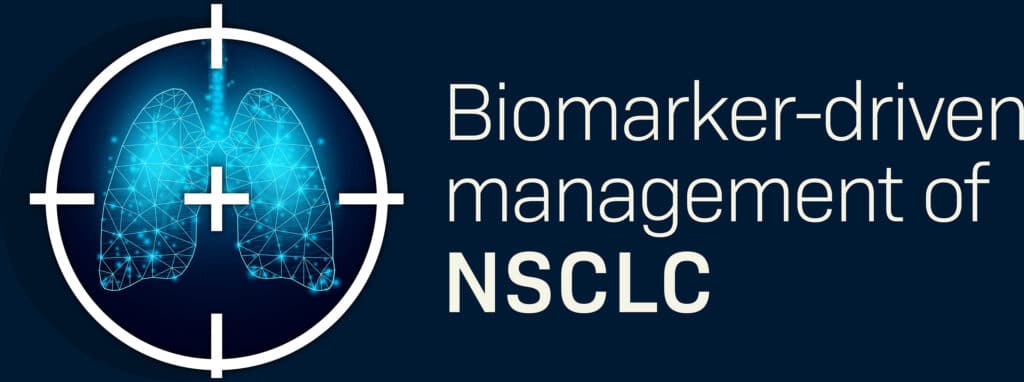About the program
The discovery of oncogenic driver mutations and the development of targeted therapies have revolutionized cancer treatment. Precision medicine, or the utilization of targeted therapies in select subgroups, means we can tailor treatments to individual patients that are more likely to show benefit, and is becoming the gold standard in many facets of medical care.
Several oncogenic driver alterations are now used as standard in the selection of treatment regimens in non-small cell lung cancer (NSCLC), such as EGFR, ALK, ROS1, BRAF, HER2 and NTRK, with more being discovered.
This expert-led program will help individualize management of NSCLC by providing education on biomarker testing (for NTRK fusions and HER2 mutations), current evidence-based guidelines and new and emerging targeted therapies.
There will also be guidance on integrating shared decision-making into your clinical practice drawing on insights from a patient on how best to communicate and enact a treatment plan together. This includes downloadable tools that you can provide to patients during consultations to facilitate the shared decision-making process.
Learning objectives
Following completion of this independent educational program, you will be able to:
- Select appropriate biomarker tests to inform treatment selection for patients with NSCLC
- Integrate new clinical data on targeted therapies into clinical practice to create individualized treatment plans for patients with biomarker-positive NSCLC
- Utilize educational tools and resources to help patients engage in a shared decision-making approach when selecting a management strategy
Target audience
This independent educational program is suitable for oncologists, pathologists and those treating patients with NSCLC worldwide.
Accreditation

This activity has been planned and implemented by the Postgraduate Institute for Medicine (PIM) and Springer Healthcare IME. PIM is committed to ensuring that all jointly provided activities are planned and implemented in accordance with the requirements of the Accreditation Council for Continuing Medical Education (ACCME), the American Nurses Credentialing Center Commission on Accreditation (ANCC), and the Accreditation Council for Pharmacy Education (ACPE), or other accrediting body, as appropriate to the type of credit to be provided by the activity.
The Postgraduate Institute for Medicine designates this program for a maximum of 0.75 AMA PRA Category 1 Credit(s)™. The maximum number of hours awarded for this Continuing Nursing Education program is 0.75 contact hours. The credits are awarded for completion of the following activities:
- Completion of three interactive patient-case simulation modules (0.25 AMA PRA Category 1 Credits™ per module)
Planning committee
In addition to the expert faculty, the Postgraduate Institute for Medicine (PIM) and Springer Healthcare IME planners and staff include Holly Keatts, Alexandros Marantzidis, Leah Bundy, Rachel Goddard and James Hutton. The Planning Committee have no financial relationships to disclose.
All relevant financial relationships of the Faculty have been mitigated.
This program is aligned with Springer Medicine – an English-language, medical education platform provided by the Springer Nature Group. Springer Medicine supports doctors in their ongoing quest for optimal patient care, and delivers the latest evidence on new therapies, practice guidelines and news in easily digestible formats to keep healthcare professionals effortlessly up to date.


